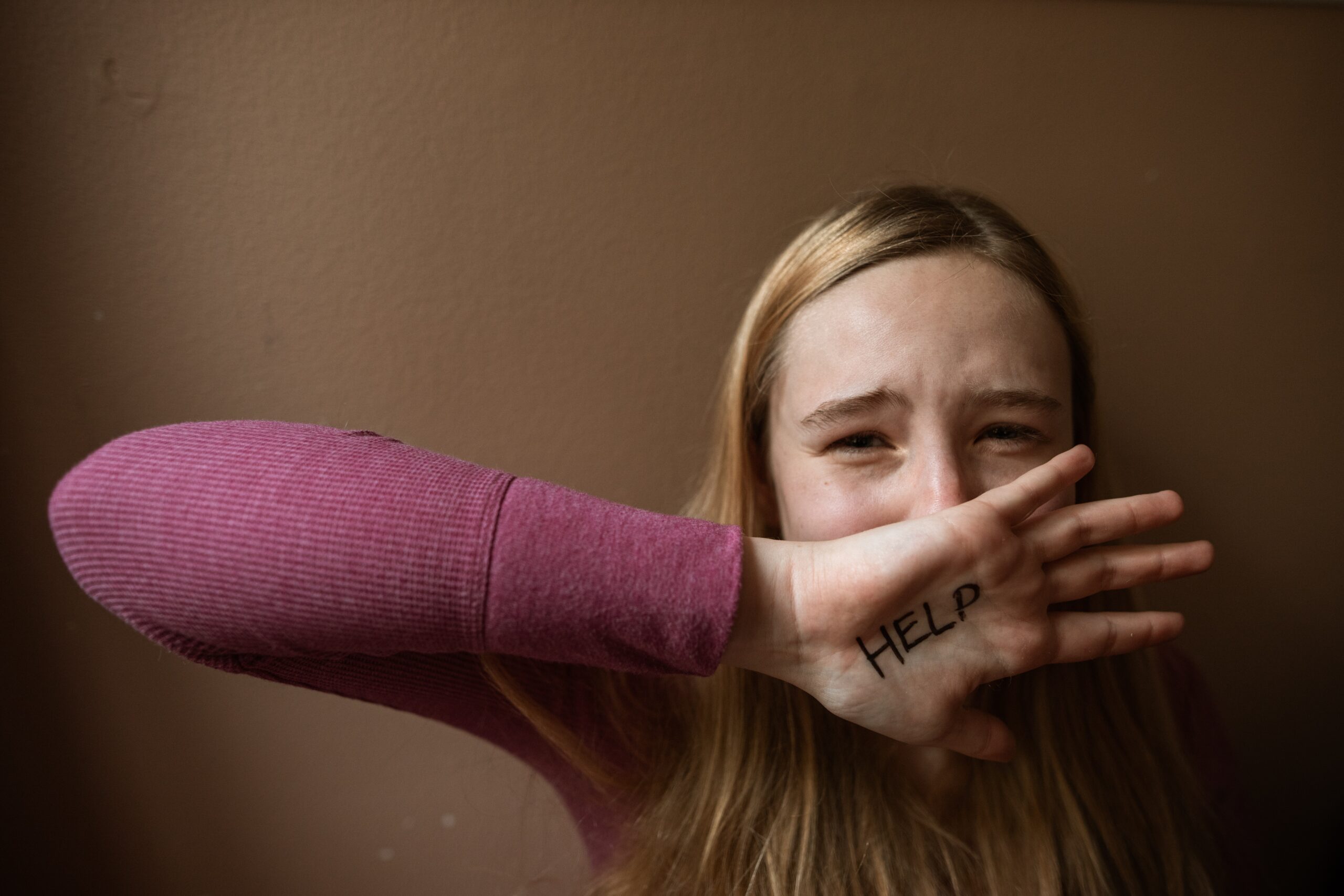![]()
Introduction:
“One in three rape victims is a child. More than 7200 children, including infants, re raped every year. Given the stigma attached to rapes, especially when it comes to children, this most likely is only the tip of the iceberg”[1]
The Protection of Children from Sexual Offences Act (POCSO Act) was enacted in 2012. Since the inception of the 21st century, sexual offences against children have started to increase. The POCSO Act provides for the establishment of special courts for trial of child sexual abuse matters. The establishment of Special Courts in every District all over India had felicitated the trial of cases registered under the POCSO Act. According to the E-Court Services record, an example of the implementation gap is the fact that there are a total of 200-600 cases of sexual offences pending in each of the designated courts in Delhi. Only In-camera proceedings comprising of the parties to the case and the respective Advocates are carried out in these special Courts which only hear cases relating to the complaints made under the POCSO Act, 2012. Female Judicial Officers are usually designated by the concerned District Judges to hear these cases. Moreover, Lady Public Prosecutors are appointed by the States for the running of the criminal trials under the POCSO Act, 2012.
On 30 November 2015, Member of Parliament Shri Rajiv Chandrashekhar spoke at an Open House on ‘Why we need to start talking about Child Sexual Abuse and protect our children’. With the enactment of the Protection of Children from Sexual Offences Act (POCSO Act) and increasing awareness among civil society groups, there is an unprecedented momentum regarding protecting children from sexual abuse.[2]
Aims and Objectives behind Enactment of POCSO Act, 2012
1. Child sexual abuse may be committed by anyone, irrespective of age, gender ethnicity or educational/income profile. The main aim of the enactment of the POCSO Act, 2012 is to protect the children from sexual abuses.
2. Children who face economic and social vulnerabilities have a harder time accessing the criminal justice system and hence there was always a need for a strict law to protect the children both physically as well as mentally.
3. The POCSO Act defines various types of offences which includes sexual assault, sexual harassment and pornography and tries to safeguard the interest of the children being the most vulnerable section of the society.
4. The POCSO Act provides for child-friendly atmosphere regarding the recording of evidence, investigation and trial of offences, the establishment of special courts and speedy trial of cases.
5. The main objective of the POCSO Act is to protect and safeguard the interest of the children at every stage of a judicial proceeding in a Special Court designated to hear POCSO cases.
6. POCSO Act may qualify as beneficial legislation to protect children from sexual offences.
7. Every District is designated with a Special Court to hear and dispose of the cases registered under the different provisions of the POCSO, Act, 2012.
8. As per the recent National Crime Records Bureau, with globalization, the gravity of offences against the children had taken a steady growth throughout India.
9. The victim of the sexual abuse may come from any section of society and may belong to any gender, so the Legislature with an intention to protect the larger interest of the society had enacted the POCSO Act, 2012.
10. The POCSO Act provides that the child testimony take place within a month of the taking of cognizance by the Court, and the trial within a year of the same.
11. The POCSO Act provides speedy justice to children who are subjected to sexual abuse.
Drawbacks of the POCSO Act, 2012:
1. The POCSO Act does not provide any scope to the idea of consent given by persons under 18.
2. The Act also does not provide any clarity on what happens when two minors engage in any kind of sexual activity. On particular analysis of the POCSO Act, 2012 it will be evident that there are two types of children in India namely; Children in Need of Care and Protection (CNCP) and Children in conflict with the law (CCLs) and hence such children shall be looked upon with due care and diligence.
3. The POCSO Act does not provide for any documents which can be considered for determining the age of the child victim, the provisions of Rule 12 of the Juvenile Justice Rules has been referred to by Courts while identifying the child victims. Rule 12 of the Juvenile Justice Rules recognizes only the birth certificate, the school certificate of the child, or the matriculation certificate for determining the age of the child victim. Children who do not possess the aforesaid mentioned documents and can only produce any other document which may be a passport, have to compulsorily undergo a bone ossification test. This test can give a rough estimate of the age of the child at best. There must be a clear and particular provision in the POCSO Act that lays down what documents should be considered for proving the age of the child, and whether the benefit of the doubt should be given to the child if the bone ossification test cannot do an exact assessment. This type of ambiguities are very much present in the POCSO Act, 2012 and there is an urgent requirement for its amendment as soon as possible.
4. The police face lot of problems in conducting a proper investigation in POCSO cases. It begins with the registration of the First Information Report (FIR). The police must look into the fact that there is no delay in the registration of the FIR, and the conducting of the Medico-Legal Case (MLC). In a POCSO case, a Medico-legal Case must necessarily and essentially be registered by the Investigating Officer of the concerned POCSO case.
5. The section of the Police forces must be trained with Forensic Sciences so that it becomes easier for them to conduct Medic-Legal case.
6. Another backdrop of the POCSO Act, 2012 is that many serious reluctant attitudes of the institutions affect the legal protection of children below the age of 18 years.
Records published by the National Crime Records Bureau:
As per the National Crime Records Bureau reports in the year 2014, the following States reported a huge increase in the child sexual abuse-
i) Uttar Pradesh
ii) Tamil Nadu
iii) West Bengal
According to the NCRB (National Crime Records Bureau) reports in the year 2018, it was been stated that more or less 109 children are sexually abused every day in India. It further submitted that 17,500 children were subjected to rape in the year 2018.[3]
In a survey conducted by the Ministry of Child and Women Welfare, Government of India, it was found that more or less 53% of the children in India are the victims of sexual abuse.[4]
Child sexual abuse is an under-reported offence in India. A scientific study on the prevalence of sexual abuse among adolescents in the state of Kerala reported that 36 per cent of boys and 35 per cent of girls had experienced sexual abuse at the same point of time. [5]
POCSO Act, 2012 and Jurisprudence
The Applicable school of thought for the POCSO Act, 2012 is the Positivist School of Law. John Austin is one of the main thinkers of the Positive School of Law. The POCSO Act, 2012 can be explained under Austin’s scheme as John Austin describes positive law as “aggregate of rules set by man politically superior of men who are politically inferior.
Role of Doctors in Providing Care:
The POCSO Act, 2012 provides for the medical examination of the child in a manner that is least distressful. The Act also clearly states that the doctor should not demand legal records or legal procedure or legal documentation before initiating the treatment or examination of the child. The doctor is under an obligation to register a Medico-Legal Case in all cases of child abuse. Failure of reporting Medico-Legal Case by the doctor may result in six months imprisonment and/or fine under section 21 of the POCSO Act, 2012.
Conclusion
The POCSO Act, 2012 is a comprehensive law to provide for the protection of children from the offences of sexual assault, sexual harassment and pornography while safeguarding the interests of the child at every stage of a judicial proceeding. The act came up with much hope and as a reform in the criminal justice system by providing special courts, making the police more sensitive in handling the cases such as recording of statement of a girl child victim by a female officer, providing legal safeguards to the victim and above all deciding the case in a time period of one year. The legislative intent for criminalizing sexual offences against children was a much-needed piece of legislation. The adjudication in cases in which sexual offences are committed against the children must be very much transparent and the role of the police forces must be more prompt and investigation shall be carried out very quickly in order to administer justice.
References:
[1] Louis- Georges Arsenault, UNICEF Representative to India, 31-12-2012
[2] Srishti Agnihotriand Minakshi Das(2015,December, 18) https://blogs.lse.ac.uk/southasia/2015/12/18/reviewing-indias-protection-of-children-from-sexual-offences-act-three-years-on/
[3] Fazil Khan(2019, November,5) www.news18.com
[4] Abhishek Khandelwal blog.ipleaders.in
[5] Krishnakumar P, Sathesaan K, Geeta MG, and Sureshkumar K.(Prevalence and Spectrum of Sexual Abuse among adolescents in Kerala)



0 Comments